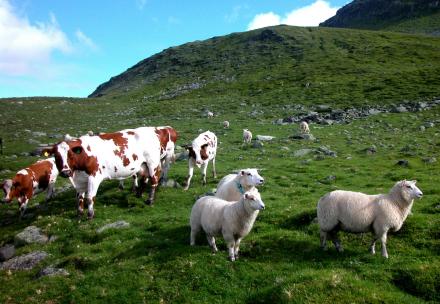Wormers And The Soil
18 December 2020Having watched programmes like Kiss The Ground on Netflix and Sacred Cow, many beef farmers are looking at their systems through a different lens, with a more critical eye. Mob grazing and more holistic management undoubtedly have a role to play in helping fight the climate emergency and also help halt biodiversity loss. There are quite a few pioneering farmers pushing forwards to create, holistic grazing systems that fit with Scottish conditions. There are also many more farmers who are watching these guys with interest and applying some of the basic principles to their own systems, a true leader follower system, where pioneers make the mistakes and followers learning from them.
Use of worming products is often flagged up by holistic grazers as a negative as the wormers can indirectly have an impact on soil ecosystems. In some cases, it’s not just the parasitic worms we’re killing, the animal also excretes some of the product, causing collateral damage to other, non-target, species such as earthworms and dung beetles. These are hugely important to soil health and the Carbon cycle. However, used sensitively and appropriately, parasites can be controlled without having a detrimental impact on soil biology.
I have seen several videos recently telling farmers to reduce their use of wormers or cut them out altogether to reduce their impact on soil ecosystems. This message is over simplistic and could be detrimental to animal performance and more importantly have a negative impact on animal welfare. We should all be considering changing your dosing policy, however, this should be done in close consultation with your vet. Tools like faecal egg counts and targeted selected treatment are a good place to start to reduce anthelmintic usage and would have a positive impact on your bank balance, while avoiding any negative impacts on soil biology or animal welfare.
Robert Ramsay, robert.ramsay@sac.co.uk
Sign up to the FAS newsletter
Receive updates on news, events and publications from Scotland’s Farm Advisory Service

